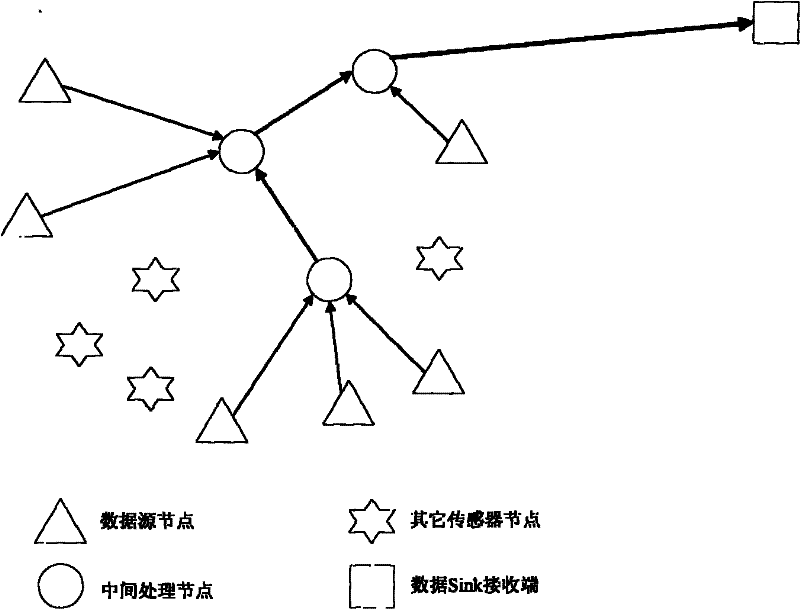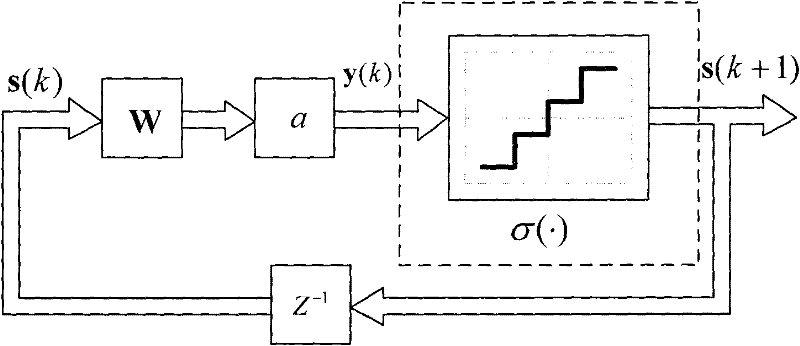A Blind Detection Method for Multilevel Signals Based on Discrete Full Feedback Neural Network
A neural network, multi-level technology, used in transmitter/receiver shaping networks, electrical components, multi-carrier systems, etc.
- Summary
- Abstract
- Description
- Claims
- Application Information
AI Technical Summary
Problems solved by technology
Method used
Image
Examples
Embodiment Construction
[0035] Using the complex discrete multi-level activation function and using the appropriate gain coefficient a, construct the complex discrete Hopfield neural network to realize the blind detection of the multi-level multi-ary system quadrature amplitude modulation MQAM (Multi-Quadrature Amplitude Modulated) signal. The specific steps are as follows conduct:
[0036] A. The gateway Sink terminal receives the signal transmitted by a single intermediate node and performs oversampling to obtain the receiving equation of the discrete time channel at the gateway Sink terminal
[0037] x N =SΓ H
[0038] In the formula, S = [ s L + M ( k ) , . . . , s ...
PUM
 Login to View More
Login to View More Abstract
Description
Claims
Application Information
 Login to View More
Login to View More - R&D
- Intellectual Property
- Life Sciences
- Materials
- Tech Scout
- Unparalleled Data Quality
- Higher Quality Content
- 60% Fewer Hallucinations
Browse by: Latest US Patents, China's latest patents, Technical Efficacy Thesaurus, Application Domain, Technology Topic, Popular Technical Reports.
© 2025 PatSnap. All rights reserved.Legal|Privacy policy|Modern Slavery Act Transparency Statement|Sitemap|About US| Contact US: help@patsnap.com



